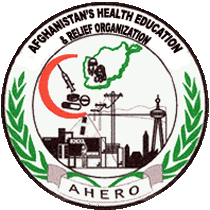About AHERO
AHERO — Afghanistan’s Health, Education, and Relief Organization — is a 501c(3) nonprofit organization created for the implementation of developing an improved educational, humanitarian and medical delivery system for Afghanistan. The vast majority of our clients and patients will be the poor and needy of Afghanistan. AHERO also has a future goal of building hospitals, medical centers, clinics, schools and community support systems.
AHERO is based in California and aligned with the Omar Kamali Foundation, a registered Afghanistan nongovernmental organization.
AHERO’s tax ID number is 47–0863439.
Historical background
In 1979, the Soviet Union invaded Afghanistan. Three million Afghan citizens fled to Pakistan for safety, becoming wartime refugees and leaving their entire existence behind. As refugees in Pakistan, they faced an uncertain life and experienced poor living conditions. Because of the war, these Afghan refugees had no hope of returning to their homeland. The children were deprived of education and had no access to medical care. Wars inflict a great deal of mental, physical and emotional pain and misery on civilian populations, and this war was no exception. Hundreds of thousands lost their lives, families, homes and property. The wounded were brought into Pakistan by the thousands, where no medical care was available for them.
Dr. Aziz Kamali, the founder of AHERO, remembers when he finished his medical residency in California in 1985: “I went to Pakistan and began working in a small village near the eastern border of Afghanistan, and there I saw children and adults of all ages who had lost their arms and legs to the yellow butterfly mines and other anti-personnel weapons used by the Russians during this war. Conditions were so harsh that the medical teams had to perform amputations and other surgeries under local anesthesia in less-than-hospital-type conditions.”
When Doctor Kamail returned to the United States, he decided to open a clinic to help his fellow Afghans who were refugees in Pakistan. He had no financial means to start a big hospital, so he did the next best thing: He rented a small, mud-walled house near the Afghanistan–Pakistan border and turned it into a small medical clinic. Later, the clinic was moved to Peshawar, Pakistan, near the refugee camp of Nasser Bagh. For the next two years, Dr. Kamali supervised this clinic from the United States. In the late 1980s, Dr. Kamali’s younger brother, Dr. Atiquallah Kamali, graduated from medical school and completed his residency in internal medicine; he provided medical services to the Afghan refugees at the Kamali Family Medical Clinic in Peshawar.
The Kamali Family Medical Clinic in Peshawar has since been closed, and a new clinic has been established in Jalalabad, Afghanistan. That clinic is The Omar Kamali Medical Center, Jalalabad Afghanistan. This original facility will serve as a smaller hospital while we are financing and designing the much larger, 350-bed medical center, which will have the following:
- Ten dialysis units
- Full-body ultrasound services
- Echocardiography services
- Neonatal services with incubators
- Mechanical ventilation
- Orthopedic and general surgery
- Laparoscopic procedures
- Complete anesthesia services
- General laboratory services
We are also working to provide full cardiac care services in the very near future.
The medical director is Dr. Atiqullah Kamali, the center’s medical director and chief of the Department of Gastroenterology. Dr. Atiqullah Kamali is a board certified gastroenterologist, an International Fellow of the American College of Gastroenterology and an International Fellow of the American College of Physicians.

